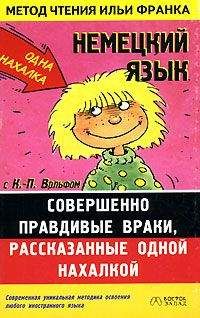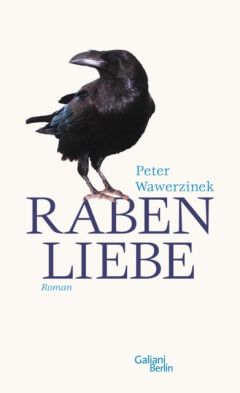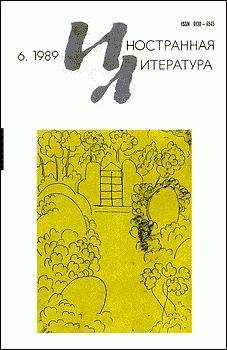Уильям Моэм - Английский язык с У. С. Моэмом. На окраине империи. Рассказы
delicate ['delIkIt], aristocratic["xrIstq'krxtIk], notorious [nq(u)'tO: rIqs], fragile ['frxdZaIl], replica ['replIkq], amorous ['xm(q)rqs], significance [sIg'nIfIkqns]
Her delicate features, the aristocratic shortness of her upper lip, and her wealth of fair hair suggested the marquise again, and it must have been obvious, even if it were not notorious, that in her veins flowed the best blood in Chicago. The dining-room was a fitting frame to her fragile beauty, for Isabel had caused the house, a replica of a palace on the Grand Canal at Venice, to be furnished by an English expert in the style of Louis XV; and the graceful decoration linked with the name of that amorous monarch enhanced her loveliness and at the same time acquired from it a more profound significance.
For Isabel's mind was richly stored (так как ум Изабеллы был богато наполнен = Изабелла обладала широкой эрудицией; richly — богато; полностью, с избытком; to store — снабжать, наполнять), and her conversation, however light, was never flippant (ее разговор, каким бы несущественным он ни был, вовсе не был легкомысленным; light — легкий; несерьезный, незначительный). She spoke now of the Musicale to which she and her mother had been in the afternoon (сейчас она говорила о музыкальном вечере, который она с матерью посетила днем), of the lectures which an English poet was giving at the Auditorium (о лекциях, которые читал в Лектории один английский поэт), of the political situation (о политической ситуации), and of the Old Master which her father had recently bought for fifty thousand dollars in New York (и о полотне /одного из/ старых мастеров, которое ее отец недавно купил за пятьдесят тысяч долларов в Нью-Йорке; the Old Master — один из великих художников периода XV–XVIII вв.;картина такого художника; to buy). It comforted Bateman to hear her (Бейтман успокаивался, слушая ее). He felt that he was once more in the civilized world (он почувствовал, что снова находится в цивилизованном мире), at the center of culture and distinction (в центре культуры и благородства; distinction — различение; знатность); and certain voices, troubling and yet against his will refusing to still their clamour, were at last silent in his heart (и некие тревожащие голоса, которые против его воли отказывались смолкнуть: «заставить замолчать свои шумные протесты», наконец-то замолчали в его душе; clamour — шум, крик; шумные протесты; возмущение, ропот).
musicale ["mju: zI'kxl], auditorium ["O: dI'tO: rIqm], civilized ['sIv(q)laIzd], clamour ['klxmq]
For Isabel's mind was richly stored, and her conversation, however light, was never flippant. She spoke now of the Musicale to which she and her mother had been in the afternoon, of the lectures which an English poet was giving at the Auditorium, of the political situation, and of the Old Master which her father had recently bought for fifty thousand dollars in New York. It comforted Bateman to hear her. He felt that he was once more in the civilized world, at the center of culture and distinction; and certain voices, troubling and yet against his will refusing to still their clamour, were at last silent in his heart.
"Gee, but it's good to be back in Chicago (Боже, здорово снова вернуться в Чикаго)," he said.
At last dinner was over (наконец обед подошел к концу: «закончился»), and when they went out of the dining-room Isabel said to her mother (и, когда они вышли из столовой, Изабелла сказала матери):
"I'm going to take Bateman along to my den (я собираюсь пойти с Бейтманом в свою комнату; den— логово, берлога; разг. уютная небольшая комната, рабочий кабинет). We have various things to talk about (нам о многом: «разном» надо поговорить; various— различный; многие, разные;thing— вещь, предмет; вещь, явление)."
"Very well, my dear (очень хорошо, моя дорогая)," said Mrs. Longstaffe. "You'll find your father and me in the Madame du Barry room when you're through (когда вы освободитесь, ты найдешь нас с отцом в комнате, /оформленной в стиле/ мадам дю Барри /1746-1793, любовница Людовика XVII/; be through — закончить, завершить)."
Isabel led the young man upstairs (Изабелла повела молодого человека вверх /по лестнице/; to lead) and showed him into the room of which he had so many charming memories (и /они/ вошли в ту самую комнату, о которой у него сохранилось столь много чарующих воспоминаний; to show smb. into a place — провожать, сопровождать кого-либо куда-либо). Though he knew it so well he could not repress the exclamation of delight (хотя он и знал /эту комнату/ очень хорошо, он не мог сдержать восторженного восклицания; to repress — подавлять; сдерживать/чувства и т. п./) which it always wrung from him (которое у него всегда вырывалось; to wring — скручивать; вымогать). She looked round with a smile (она с улыбкой оглядела комнату: «огляделась вокруг»).
various ['ve(q)rIqs], upstairs ["Ap'steqz], exclamation ["eksklq'meIS(q)n]
"Gee, but it's good to be back in Chicago," he said.
At last dinner was over, and when they went out of the dining-room Isabel said to her mother:
"I'm going to take Bateman along to my den. We have various things to talk about."
"Very well, my dear," said Mrs. Longstaffe. "You'll find your father and me in the Madame du Barry room when you're through."
Isabel led the young man upstairs and showed him into the room of which he had so many charming memories. Though he knew it so well he could not repress the exclamation of delight which it always wrung from him. She looked round with a smile.
"I think it's a success (мне кажется, что она удалась; success — успех, удача;то, что пользуется успехом)," she said. "The main thing is that it's right (самое главное — что она совершенно достоверная; right— правый, справедливый; надлежащий, подходящий). There's not even an ashtray that isn't of the period (здесь нет даже пепельницы, которая не принадлежала бы к эпохе;period— период, промежуток времени; эпоха, время)."
"I suppose that's what makes it so wonderful (полагаю, именно это и делает ее /комнату/ такой удивительной). Like all you do it's so superlatively right (как и все, что ты делаешь, она в высшей степени достоверная)."
They sat down in front of a log fire (они присели перед камином; log— бревно, чурбан;fire— огонь, пламя) and Isabel looked at him with calm grave eyes (и Изабелла посмотрела на него своими спокойными, печальными глазами; grave— серьезный; мрачный, печальный).
"Now what have you to say to me (итак, что ты мне можешь рассказать)?" she asked.
"I hardly know how to begin (даже не знаю, с чего начать)."
"Is Edward Barnard coming back (Эдвард Барнард возвращается)?"
"No."
success [sqk'ses], ashtray ['xStreI], superlatively [s(j)u:'pWlqtIvlI]
"I think it's a success," she said. "The main thing is that it's right. There's not even an ashtray that isn't of the period."
"I suppose that's what makes it so wonderful. Like all you do it's so superlatively right."
They sat down in front of a log fire and Isabel looked at him with calm grave eyes.
"Now what have you to say to me?" she asked.
"I hardly know how to begin."
"Is Edward Barnard coming back?"
"No."
There was a long silence before Bateman spoke again (стояла долгая тишина, прежде чем Бейтман снова заговорил), and with each of them it was filled with many thoughts (и для каждого из них она была наполнена множеством мыслей). It was a difficult story he had to tell (история, которую он должен был рассказать, была неприятной; difficult — трудный; затруднительный, неприятный), for there were things in it which were so offensive to her sensitive ears (потому как в ней были вещи, которые были оскорбительными для ее нежных ушей) that he could not bear to tell them (и ему было тяжело их рассказывать; to bear — терпеть, выносить; мириться/с чем-либо/), and yet in justice to her, no less than in justice to himself (и все же, отдавая ей должное, так же как и самому себе; justice — справедливость), he must tell her the whole truth (он должен был рассказать ей всю историю целиком).
offensive [q'fensIv], bear [beq], justice ['dZAstIs]
There was a long silence before Bateman spoke again, and with each of them it was filled with many thoughts. It was a difficult story he had to tell, for there were things in it which were so offensive to her sensitive ears that he could not bear to tell them, and yet in justice to her, no less than in justice to himself, he must tell her the whole truth.
It had all begun long ago when he and Edward Barnard, still at college, had met Isabel Longstaffe (все это началось очень давно, когда он и Эдвард Барнард, /тогда они/ все еще учились в колледже, познакомились с Изабеллой Лонгстаф; to meet — встречать; знакомиться) at the tea-party given to introduce her to society (на чаепитии, устроенном /в честь/ ее представления в обществе = ее выхода в свет; to introduce — вводить, вставлять; приводить, впускать/куда-либо/). They had both known her when she was a child and they long-legged boys (они оба знали ее, когда она была /еще/ ребенком, а они — длинноногими мальчишками), but for two years she had been in Europe to finish her education (но она провела в Европе два года, заканчивая свое образование) and it was with a surprised delight that they renewed acquaintance with the lovely girl who returned (и с удивленным восхищением они возобновили знакомство, с возвратившейся прелестной девушкой; to renew — обновлять; возобновлять).
society [sq'saIqtI], education ["edjV'keIS(q)n], acquaintance [q'kweIntqns]
It had all begun long ago when he and Edward Barnard, still at college, had met Isabel Longstaffe at the tea-party given to introduce her to society. They had both known her when she was a child and they long-legged boys, but for two years she had been in Europe to finish her education and it was with a surprised delight that they renewed acquaintance with the lovely girl who returned.
Both of them fell desperately in love with her (оба они безумно влюбились в нее; to fall into a state — приходить, впадать в какое-либо состояние; desperately — отчаянно, безрассудно; эмоц. — усил. страшно, отчаянно), but Bateman saw quickly that she had eyes only for Edward (но Бейтман вскоре понял, что она смотрела только на Эдварда: «не смотрела ни на кого другого, кроме Эдварда»), and, devoted to his friend, he resigned himself to the role of confidant (и, будучи преданным своему другу, смирился с ролью доверенного лица; to resign — отказываться от должности; уступать, примиряться). He passed bitter moments (он пережил мучительные мгновения), but he could not deny that Edward was worthy of his good fortune (но он не мог отрицать = не мог не признать, что Эдвард достоин такого счастья), and, anxious that nothing should impair the friendship he so greatly valued (и, опасаясь, чтобы ничто не смогло испортить той дружбы, которой он так сильно дорожил = как бы что-нибудь не испортило…; to value — оценивать; дорожить, ценить), he took care never by a hint to disclose his own feelings (он позаботился, чтобы ни одним намеком не раскрыть своих /собственных/ чувств). In six months the young couple were engaged (через полгода: «через шесть месяцев» молодая пара была обручена).



